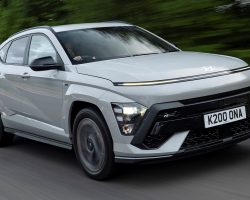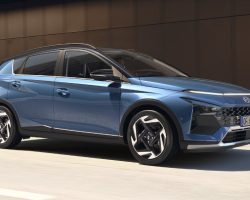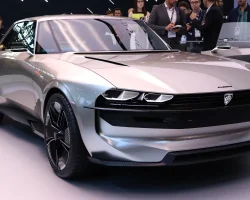The Hyundai Kona is a compact SUV that has gained a lot of attention in the automotive market. With its stylish design, advanced features, and reliable performance, the Kona has become a popular choice among car enthusiasts. In this article, we will explore the specifications, capabilities, advantages, and disadvantages of the Hyundai Kona.
Specifications:
The Hyundai Kona comes in different trim levels, each offering unique features to cater to various preferences. The base model is equipped with a 2.0-liter four-cylinder engine, producing 147 horsepower and 132 lb-ft of torque. For those seeking more power, there is an available 1.6-liter turbocharged four-cylinder engine, generating 175 horsepower and 195 lb-ft of torque. Both engines are paired with a smooth-shifting six-speed automatic transmission.
As for fuel efficiency, the Kona delivers impressive numbers. The base engine achieves an estimated 27 mpg in the city and 33 mpg on the highway, while the turbocharged engine offers slightly lower fuel economy at 26 mpg in the city and 30 mpg on the highway.
Capabilities:
Despite its compact size, the Hyundai Kona offers impressive capabilities. It features an optional all-wheel drive system that enhances traction and stability, making it suitable for various road conditions. The Kona also has a decent towing capacity, with the ability to tow up to 1,500 pounds when properly equipped.
Advantages:
- Design: The Hyundai Kona stands out with its unique and eye-catching design. It features sleek lines, a bold front grille, and distinctive LED headlights, giving it a sporty and modern look.
- Interior Space: Although the Kona is a compact SUV, it offers a surprisingly spacious interior. The rear seats can comfortably accommodate adult passengers, and the cargo area provides ample space for everyday items or weekend getaways.
- Technology: The Hyundai Kona comes equipped with a wide range of advanced technology features. These include a touchscreen infotainment system with Apple CarPlay and Android Auto compatibility, Bluetooth connectivity, USB ports, and a rearview camera. Higher trim levels offer additional features such as wireless charging and a premium audio system.
- Safety: The Kona prioritizes safety with its comprehensive suite of driver-assistance features. These include forward collision warning, automatic emergency braking, lane-keeping assist, blind-spot monitoring, and rear cross-traffic alert. These advanced safety features provide peace of mind for both the driver and passengers.
Disadvantages:
- Ride Quality: While the Kona offers a comfortable ride on smooth roads, some reviewers have noted that it can feel a bit firm over rough surfaces. This can result in a slightly less refined driving experience compared to some competitors.
- Rear Visibility: The Kona’s stylish design comes at the expense of rear visibility. The rear window is smaller, and the rear pillars are relatively thick, which may affect visibility when parking or changing lanes.
In The End, the Hyundai Kona is a compact SUV that offers a blend of style, performance, and practicality. With its impressive specifications, capable performance, and advanced features, it has become a popular choice in its segment. While it may have some minor drawbacks, the Kona’s advantages outweigh its disadvantages, making it a compelling option for those in search of a compact SUV.






